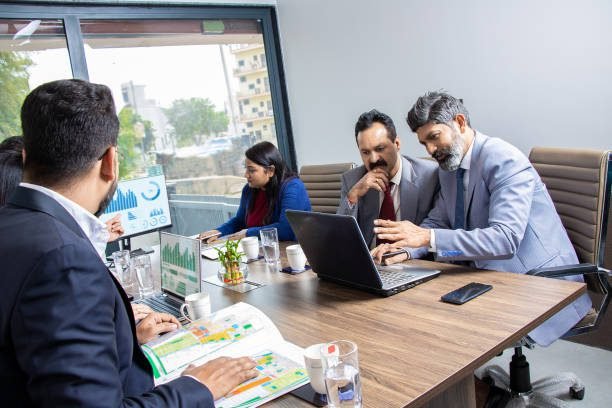Last updated on June 11th, 2024 at 05:46 am
Performing well in a senior management role requires effective leadership skills. These skills help facilitate effective team dynamics, drive success and manage change. Also, they are crucial for both professional and personal development. Read ahead to learn who are senior managers, their roles and responsibilities, as well as senior manager salary.
Who are Senior Managers?
Senior managers are highly experienced leaders who face unique challenges when leading from the top. They are responsible for not only setting a vision, but also building the future. To accomplish these tasks, senior managers in leadership roles need to deal with real and challenging short-term pressures effectively and efficiently.
Further, senior managers can benefit by gaining a deep understanding of their strengths and development opportunities. Also, focus must be laid on innovation, which is critical for any organisation to survive and thrive. This is a great strategy for senior leaders who want to make a successful transition from managing a team to leading an organisation at the functional level.
Moreover, they must focus on solving challenges by working across organisational boundaries, thinking and acting strategically, and creating engagement. Notably, one of the major senior management roles and responsibilities includes motivating people to complete their tasks as per the schedule.
Besides, it is important to note that the average senior manager salary in India is ₹26,50,000 per year. Also, the average additional cash compensation for the role is ₹3,50,000.
Must-have Leadership Skills for Senior Managers
Leadership is not just about one quality but a combination of different skills working together. To be a strong leader, one must possess the following set of skills:
- Ability to teach and mentor
- Active listening
- Creativity
- Reliability
- Effective feedback
- Empathy
- Flexibility
- Patience
- Positivity
- Timely communication
Building strong teams is essential for any business and project to perform successfully. And, effective leaders ensure this through the following skills:
- Agility and Adaptability: Ability to not only adapt to both internal and external changes, but also facilitate one if need be
- Conflict Management: Ability to mitigate a conflict before it negatively affects a business and keep the peace
- Critical Thinking: Involves understanding logical links between different ideas
- Decisiveness: Ability to make decisions quickly with the information at hand and lead with conviction
- Dependability: Includes keeping promises and creating a resilient team
- Employee Motivation: Involves improving employee engagement and efficiency
- Integrity: Involves having a strong value system
- Innovation: Ability to ideate and push boundaries to achieve growth
- Negotiation: Ability to get the most out of different sides in order to win the game
- Relationship Building: Ability to develop a strong and collaborative team
- Problem Solving: Involves staying calm and identifying solutions to resolve obstacles

How to Improve Leadership Skills?
Leadership skills can be practised in any role, at any level. For instance, showing up for meetings on time and meeting deadlines display dependability. Or, supporting and guiding less experienced colleagues is also an example of leadership.
Further, the following are the ways to develop and/or improve leadership skills:
- Read books or watch podcasts on leadership to find your style
- Pursue leadership training programmes or attend related workshops
- Participate in leadership activities outside of the workplace
- Request a leader for mentoring
Conclusion
Good leaders support a positive environment and help remove obstacles for their team. Also, they inspire their colleagues to apply positive leadership traits in their work, ensuring tasks are accomplished in time for business growth. If you want to acquire strategic leadership skills to get a good senior manager salary, then enrol in the IIM Lucknow Senior Management Programme. Reach out to Imarticus Learning, if you have any related queries.

